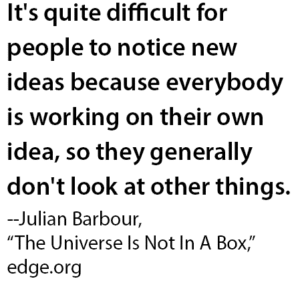 At a recent Startup Circle meeting I talked with an entrepreneur whose day job is at a tech startup in the infrared spectroscopy sector.
At a recent Startup Circle meeting I talked with an entrepreneur whose day job is at a tech startup in the infrared spectroscopy sector.
I looked at the startup’s website, and here’s my Technical Copywriter’s Analysis of what they could do to improve their marketing presentation.
I found flaws in these areas:
• Focused on features, not benefits.
• Vague, abstract testimonials.
• Applications that are not defined.
• Unnecessarily dense text.
Their site is devoted to their technical achievement of attaining simultaneous IR + Raman spectroscopy. The site presents their product as a scientific advancement to the community. The text was produced by technical writers familiar with all the details of the new instrument. It is detailed and precise. You are expected to understand how the ramifications of this innovation are so disruptive.
“A new paradigm in vibrational spectroscopy,” they tell us. Their instrument is “changing the field of IR spectroscopy.” They believe they have made a substantial technological breakthrough, an important innovation.
But they don’t tell us what they are disrupting. Their photo captions are dry facts about the output of their device: “Optical image with selected 70 x 70 μm area for analysis.”
They tell you what their machine does, but they don’t tell you what the goal of the user is. What can you do with this that you can’t do with existing instruments?
Their testimonials are no help. A research fellow at the Singapore Synchrotron Light Source says, “It is truly extraordinary.” A scientist at the SOLEIL synchrotron in France says, “It is a disruptive technology.” A college professor says, “This is truly an exciting technology.”
These are abstract opinions that tell you nothing about what the researchers learned, or what areas of research the new instrument is useful in.
They are so absorbed in the technical details that they don’t get around to telling you what it is for. The site is all features and no benefits. There is no further discussion of what their “new paradigm” means. How is it changing the field of IR spectroscopy? You are required to infer that for yourself.
This kind of machine has never been offered to the market before, but they describe only its outputs without explaining any advantages over the competition. There’s not a whisper of cost/value comparisons.
On the landing page, one section says “Wide applications capabilities that enable unique breakthrough applications in the fields of failure analysis, pharmaceuticals, life science and more.”
But not a single application is mentioned.
Searching the “Applications” section, we find the words “failure analysis” mentioned again under Pharmaceuticals, but no explication of the unit’s value except that it is “uniquely placed to meet and exceed needs.” It does not mention a single analytical need that it meets.
Perhaps their site is purely for abstract claims for technical accomplishment, aimed only at other microscope makers, a vanity site to claim priority and superiority, not intended to increase sales.
I’m thinking in marketing terms, not scientific-publication terms.
In the ad world we have a saying: No matter how good your drill bit is, nobody wants a drill bit. What they want is holes.
Their text is at a faux high level. It is unnecessarily hard to read. I use the Flesch-Kincaid Readability Index to gauge text. The company’s original PR release starts with an opening paragraph that scores Grade 33, Reading Ease negative 22. This expects the reader to have completed 12 years of post-PhD studies. (See my explanation of the Readability Index here.)
Companies think that this kind of hifalutin text makes them look super-intelligent. It’s hard to read because it is clumsily constructed, not because the concepts are difficult.
Marketing a technical breakthrough.
If it’s new, people won’t be familiar with it. You can’t make the other guy look up from his own lab bench by saying “Truly remarkable!” You’ve got to give them some red-meat details.
I have a lot of experience in helping companies explain things when they actually have something new.